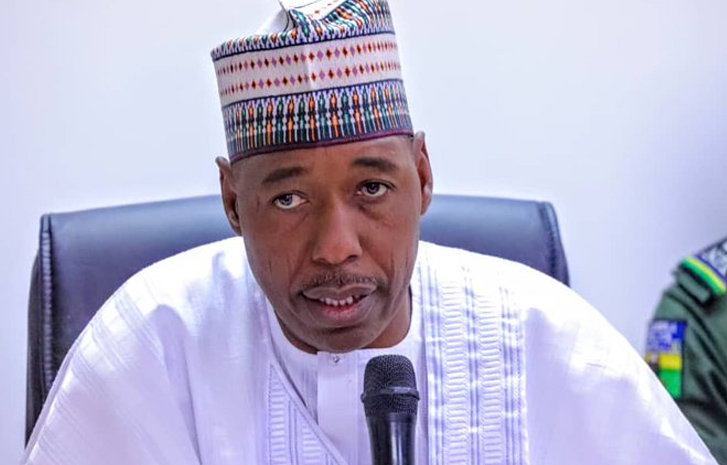Zulum, one attack too many
The convoy of Governor Babagana Umara Zulum of Borno State was ambushed on Friday, September 25, 2020, by suspected insurgents while heading towards Baga town, a fishing community on the shores of Lake Chad. Zulum was on an assessment tour of Baga in preparation for the return of thousands of residents displaced from the town […]

Borno State Governor, Professor Bababgana Zulum
The convoy of Governor Babagana Umara Zulum of Borno State was ambushed on Friday, September 25, 2020, by suspected insurgents while heading towards Baga town, a fishing community on the shores of Lake Chad.
Zulum was on an assessment tour of Baga in preparation for the return of thousands of residents displaced from the town by the insurgents in 2014. The insurgents opened fire with machine guns and rocket-propelled grenades as the convoy was passing through a village close to the headquarters of the Multinational Joint Task Force, a military coalition of troops from Nigeria, Niger, Chad and Cameroon. About 14 persons including security personnel were killed in the attack. The governor, who was not in the convoy had flown in a helicopter into the garrison town of Monguno on his way to Baga.
Two days later, the governor’s convoy was again ambushed by gunmen suspected to be Boko Haram members at Kukawa after he departed Baga town. A donkey strapped with explosives was allegedly prepared to ambush the convoy of the governor. When soldiers saw the donkey on the road, they shot at it. Explosives went off, the militants immediately came out from their hideout and opened fire on the convoy. A number of insurgents were killed in the ensuing shoot-out. No one in the convoy, including the governor, was injured.
The IS-affiliated Islamic State West Africa Province (ISWAP) group maintains most of its camps on the islands in Lake Chad, turning it into an insurgents’ stronghold. ISWAP splintered from the main Boko Haram group in 2016 and has gone on to be the dominant insurgent force in the region. The militant group has in recent times intensified attacks on military and civilian targets in the region.
It could be recalled that there was an earlier attack on Zulum outside Baga in July this year before the two recent ones. The decade-long insurgency in northeast Nigeria has killed about 36,000 people and forced over two million out of their homes. Most of the Internally Displaced Persons (IDPs) have been in camps where they depend on food from government and charitable organisations. Governor Zulum recently declared that feeding the IDPs was not financially sustainable; insisting that the only option was to return them to their homes to live a dignified life.
We understand Governor Zulum’s frustration from the burden of keeping IDPs in clustered camps and sympathise with the people and the state government because living in camps is not normal life. The inability of citizens in the state to live in their communities is clearly Governor Zulum’s major anxiety.
However, there is no need to rush the IDPs back home if it is not safe to do so. It is better to be alive in camps than to be killed by the insurgents. People should not die in the hands of terrorists because they want to live in their own homes or engage in farming activities. The fact that Governor Zulum, to some extent, enjoys compliments of security personnel is not reason enough to believe in the safety of ordinary citizens when they are moving home.
We urge the governor as well as the IDPs to exercise more patience with the situation until the entire area is sufficiently combed and remnants of insurgents cleared before they are returned home. There has been considerable progress in the fight against insurgency. No bomb explosion has been heard in Maiduguri metropolis for some time. We also encourage the military to intensify its onslaught on terrorists in order to finish the war on Boko Haram so that citizens especially in northeast Nigeria can safely return to their communities.
